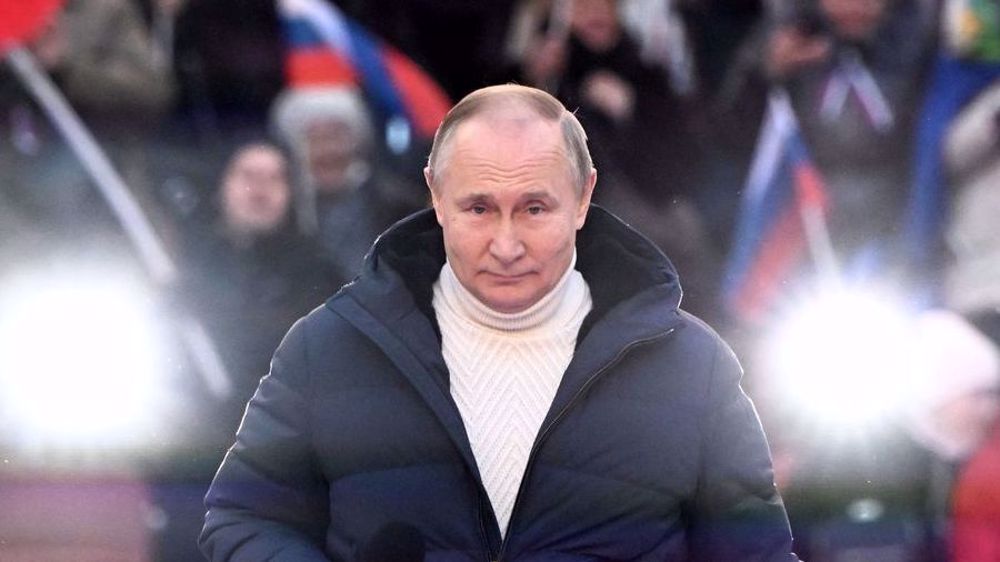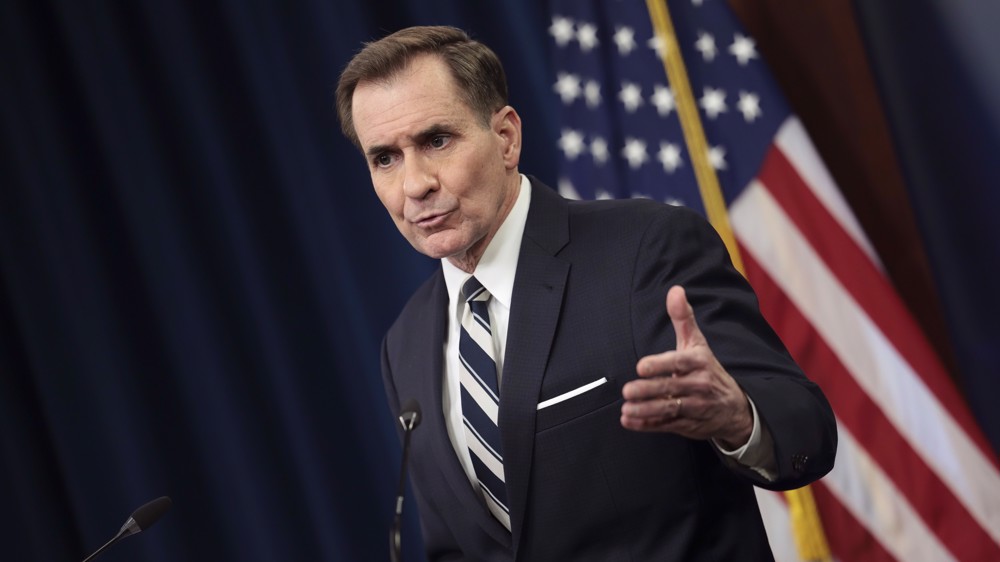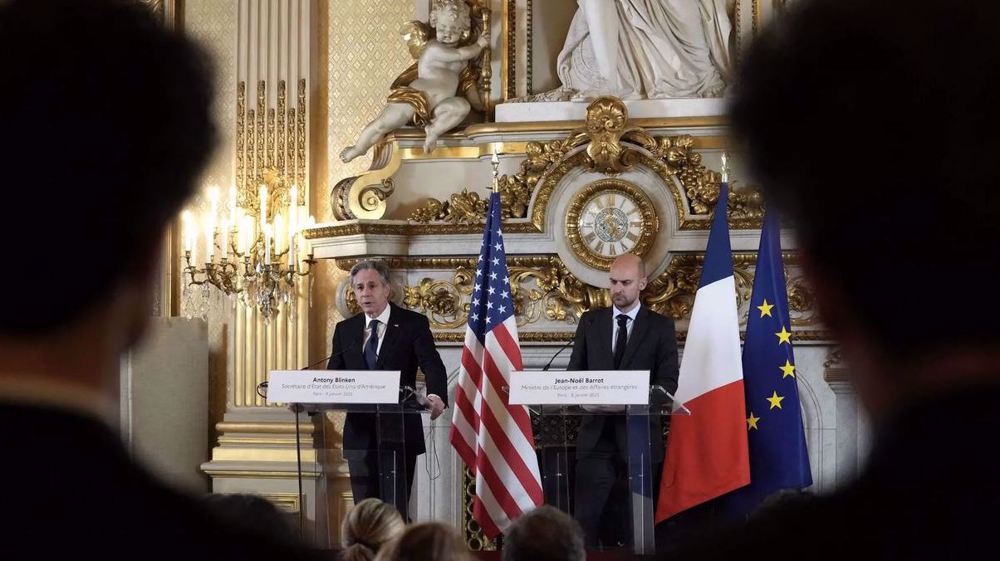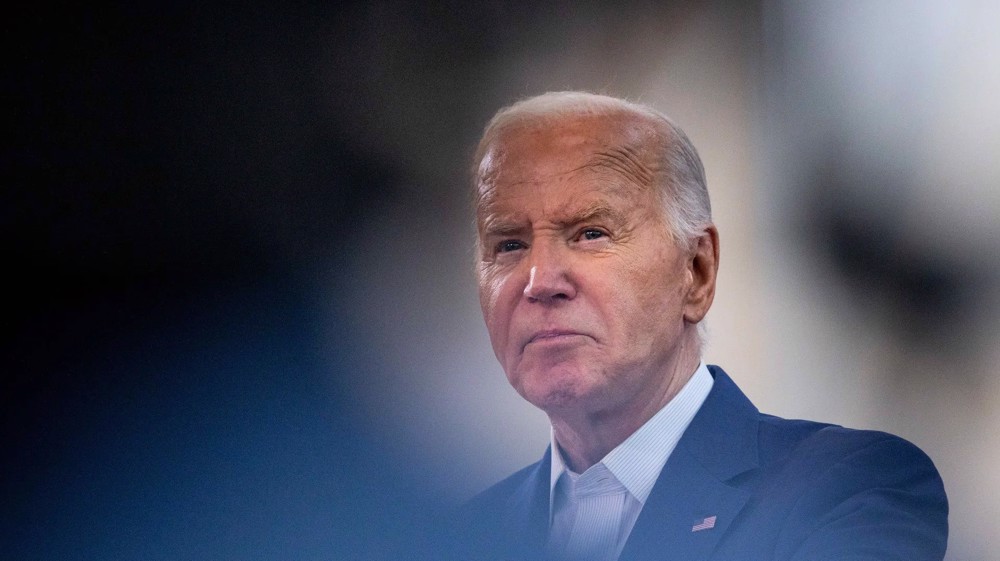White House: US, allies to impose more sanctions on Russia
The White House has said that the United States and its allies would impose more sanctions on Russia this week, as a top Greek diplomat said the sanctions are aimed at regime change in Moscow.
White House national security adviser Jake Sullivan said on Tuesday that President Joe Biden and American allies would announce the new sanctions on Russia when the president travels to Brussels on Thursday.
“He will join our partners in imposing further sanctions on Russia and tightening the existing sanctions to crack down on evasion and to ensure robust enforcement,” Sullivan told reporters during a press briefing.
Sullivan said he would not provide details regarding specific sanctions ahead of the announcement that would be made in conjunction with American allies.
But he did say that the sanctions would involve enforcing current sanctions by “ensuring that there is joint effort to crack down on evasion, sanctions-busting, on any attempt by any country to help Russia basically undermine, weaken, or get around the sanctions.”
According to a report, the Biden administration will sanction hundreds of Russian lawmakers in an extension of current sanctions on the Kremlin.
The US administration has prepared sanctions to be announced Thursday by President Biden on his upcoming trip to Europe, reported The Wall Street Journal.
Greek diplomat: 'Sanctions aimed at regime change in Moscow’
Meanwhile, a top Greek diplomat told The Hill in an interview in Washington, DC, published on Tuesday that the coordinated Western sanctions against Russia over its military campaign in Ukraine are aimed at regime change in Moscow.
Greek Alternate Foreign Minister Varvitsiotis Miltiadis hailed Biden for goading countries to impose coordinated sanctions on Moscow, but lamented Turkey’s absence from the Western push to punish Russian President Vladimir Putin.
Miltiadis was in Washington calling on policymakers there to pressurize Turkey to align with the West against Russia.
“If we don't drag [Turkey] into the sanction regime, then Russia will not feel as heavy [pressure from] the package of these sanctions that have already been imposed,” Miltiadis said.
Miltiadis emphasized that the sanctions are aimed at stoking the opposition in Russia.
“The sanctions ... are dedicated in order to bring down the Putin regime by internal unrest — and this is the idea that we create,” he said, “a climate into Russia that this act of aggression is going to be costly for the economy of Russia, and to build up the unrest and the opposition to Putin.”
Regime change in Russia or US?
Commenting on the US sanctions against Russia, an American political observer said, “It's funny. When gas prices are fully expressed in the United States - along with wheat prices - in the already stressed supply chains, they may well end up getting regime-change, but not in Russia.”
“Biden is already hanging on by a thread, with negative numbers in excess of Nixon's on the day of his resignation. Those wishing for regime change should remember: Beware what you ask for, you may get it,” he added.
The Biden administration has imposed harsh economic and banking sanctions on Russia in response to Russia's military actions in Ukraine.
Biden said the sanctions would limit Russia's ability to do business in dollars, euros, pounds and yen.
The US president claimed that the only other alternative to the sanctions would be to start a “Third World War.”
President Putin said earlier this month that Western sanctions on Russia were akin to a declaration of war.
He also warned that any attempt to impose a no-fly zone in Ukraine would lead to catastrophic consequences for the world.
Putin said his country is defending Russian-speaking communities through the "demilitarisation and de-Nazification" of Ukraine so that their neighbor became neutral and no longer threatened Russia.
"These sanctions that are being imposed are akin to a declaration of war but thank God it has not come to that," Putin said.
VIDEO | Brutal murder of journalist in India prompts calls for justice
VIDEO | Iran unveils new AI drone in Great Prophet 19 military drills
110,000 Basij forces display defense capabilities in Tehran parade
VIDEO | Joseph Aoun elected as president of Lebanon
New anti-ballistic missile system to join IRGC air defenses soon
Trump says ‘setting up’ meeting with Putin over Ukraine war
At least 10,400 Palestinians held in Israeli prisons: Report
US House passes ICC sanctions bill to protect Israeli war criminals











 This makes it easy to access the Press TV website
This makes it easy to access the Press TV website